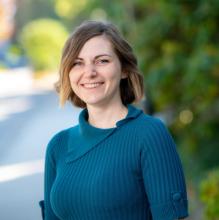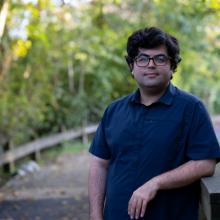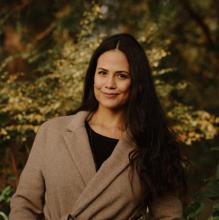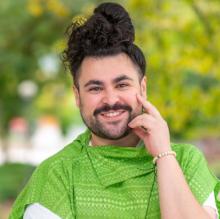Steve is a pracademic (half practioner, half academic) working on the intersections of public engagement, socio-technical transition and energy systems futures. His work in Alberta with the Energy Futures Lab helps process designers create more effective engagements and researchers better understand impacts of the processes themselves.
Research Description
The Energy Futures Lab (EFL) is designed to answer the question “How can Alberta’s leadership position in today’s energy system serve as a platform for the transition to the energy system that the future requires of us?” This is a suitably lofty goal for such an important issue but raises the question of how to measure the contribution of the EFL to such a transition and what signs are evident that this transition is occurring. Are social innovation lab processes such as the EFL resulting in structural changes or changes in decisions by policy makers as their designers hoped? Are they really contributing to shifts in regulatory frameworks or within organizations? In an attempt to answer these questions, I will develop an evaluation framework for the societal effects of participatory processes and apply that framework to this particular case.
What does being a Public Scholar mean to you?
I very much see myself as a bridge between academia and the world outside. There is so much overlap in goals but communication across silos, languages and worldviews is limited. My role as a public scholar is to bridge this divide, translate across boundaries and ensure that lay knowledge is integrated and respected in the academy and also to ensure that academic knowledge can be consumed by those outside academia.
How do you envision connecting your PhD work with broader career possibilities?
I hope to continue my trajectory as a pracademic by having a connection with UBC and continuing my consulting work. I believe that this integration of university and private sector work gives me the chance to operationalize theory and to ensure I am constantly in touch with the latest advances in the field.
How does your research engage with the larger community and social partners?
Governments, foundations and private sector partners are investing more and more resources on engaging the public in policy decisions. I believe this is the right thing to do, that we need more than just elites and experts to deal with the challenges our society faces. However, the question remains - are these resources being invested wisely? Who is being included and excluded from the process? Are there best practices that can be shared? Learning from, and sharing with, the larger community and partners doing this work is a core part of my research.
Why did you decide to pursue a graduate degree?
I wanted to spend more time thinking deeply about how systems change happens. I have been involved with such efforts working in Corporate Social Responsibility, as an activist and as a consultant - designing and facilitating public events. I became more and more curious as to what impact my work was having on the systems I was trying to change and found surprisingly little work that could answer my question - hence the PhD!
Why did you choose to come to British Columbia and study at UBC?
I have been based in Vancouver for over 20 years so the chance to study here was very appealing. UBC has a strong reputation for sustainability and I was thrilled to work with my supervisor John Robinson. Finally, my department (RMES) is very interdisciplinary which fits the way I look at scholarship and my research goals.
Learning from, and sharing with, the larger community and partners doing this work is a core part of my research".




